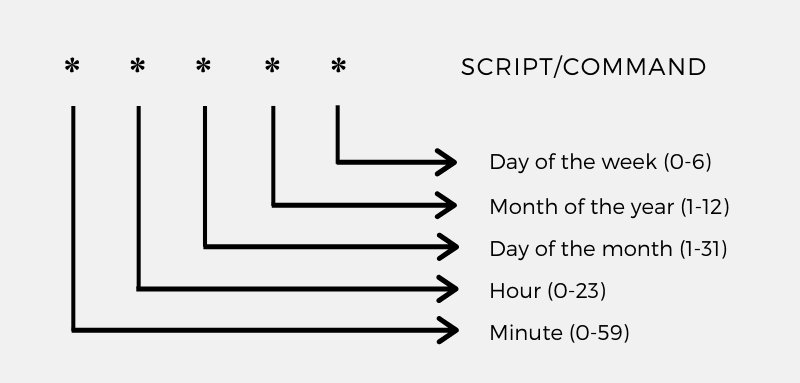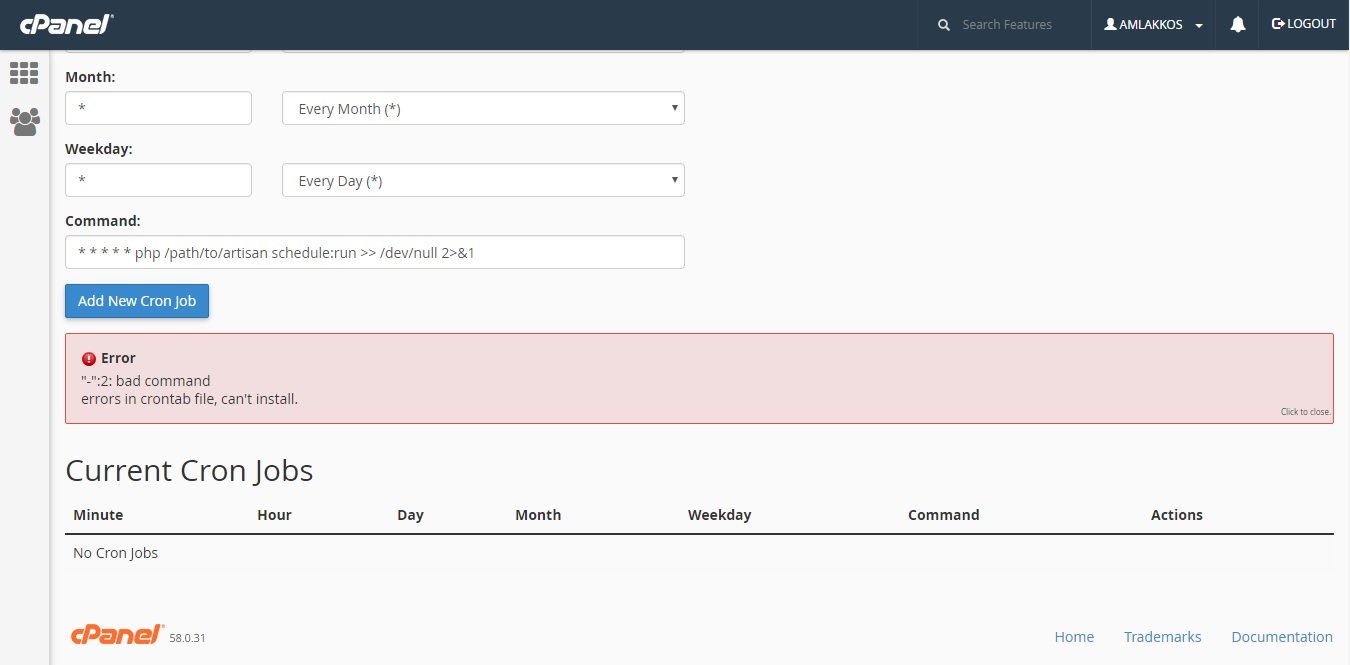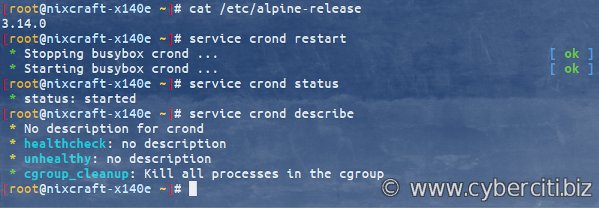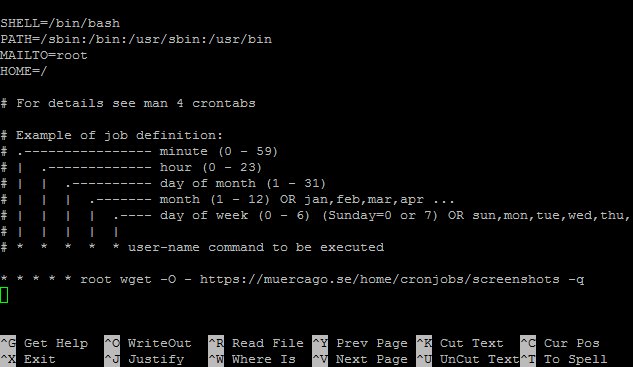Are you looking for a powerful and efficient way to schedule tasks in your Go applications? Look no further! Golang Cron is the perfect solution for all your scheduling needs. With Golang Cron, you can easily schedule and run jobs at specified intervals, specific times, or even days of the week. Whether you need to send periodic emails, clean up temporary files, or fetch data from external APIs, Golang Cron has got you covered. In this article, we will explore the ins and outs of Golang Cron and demonstrate how it can elevate the way you handle task scheduling in your Go projects. So, let’s dive in and discover the incredible capabilities of Golang Cron.
Golang Cron: A Comprehensive Guide to Efficient Task Scheduling
Introduction
Task scheduling is a critical aspect of any software application, allowing developers to automate routine jobs and execute time-based operations. In the Go programming language, golang cron provides a powerful and efficient way to schedule and run recurring tasks. This guide will delve into the intricacies of golang cron, including its features, implementation, best practices, and integration with other Go packages. So, let’s dive in and explore the world of task scheduling with golang cron.
Understanding Golang Cron
Golang cron is a popular Go package that enables developers to schedule and execute tasks at specified intervals or times. It is inspired by the Unix cron utility and provides a similar interface and functionality. With golang cron, you can effortlessly schedule recurring tasks, such as database backups, data synchronization, report generation, and more. This package simplifies the implementation of task scheduling in Go applications, allowing developers to automate essential operations efficiently.
Features of Golang Cron
Golang cron offers a range of features that make it a reliable and efficient task scheduling tool. Some notable features include:
1. **Simple and intuitive syntax**: Golang cron provides a straightforward API with easy-to-understand syntax, making it user-friendly for developers of all experience levels.
2. **Flexible scheduling**: It supports various types of scheduling, including fixed-rate, fixed-delay, and cron-based scheduling. This flexibility allows developers to define precise scheduling patterns for their tasks.
3. **Precise time resolution**: Golang cron utilizes the time package in Go, ensuring accurate time resolution for scheduling tasks. This precision is crucial for applications that require strict adherence to time-sensitive operations.
4. **Concurrency-safe**: Golang cron is designed to handle multiple tasks concurrently without conflicts. It efficiently manages and distributes tasks across goroutines, ensuring smooth and reliable execution.
5. **Error handling**: The package provides robust error handling mechanisms, allowing developers to handle and log errors effectively. This ensures that tasks run smoothly and failures are appropriately managed.
Implementing Golang Cron
Implementing golang cron in your Go application is a simple and straightforward process. The following steps outline the process of integrating and utilizing golang cron effectively:
Step 1: Installation
To begin, you need to install the golang cron package using the go get command:
“`shell
go get github.com/robfig/cron
“`
This will download and install the package in your Go workspace.
Step 2: Importing the Package
Next, import the golang cron package into your Go source code using the import statement:
“`go
import “github.com/robfig/cron”
“`
Step 3: Creating a Cron Scheduler
Once the package is imported, create a new cron scheduler using the New() function provided by the package:
“`go
c := cron.New()
“`
This creates a new instance of the cron scheduler.
Step 4: Scheduling Tasks
To schedule a task, you need to define a function or method that represents the task to be executed. This function should be compatible with the cron.Job interface, which requires the implementation of a single method: Run().
For example, let’s say you want to schedule a task to print “Hello, World!” every minute:
“`go
func printHello() {
fmt.Println(“Hello, World!”)
}
c.AddFunc(“* * * * *”, printHello)
“`
In this example, the AddFunc() method is used to schedule the printHello() function to run every minute. The “* * * * *” parameter is a cron expression that defines the scheduling pattern. You can refer to the cron expression format documentation for more details on creating custom schedules.
Step 5: Starting the Scheduler
To start the cron scheduler and initiate the execution of scheduled tasks, call the Start() method:
“`go
c.Start()
“`
The Start() method will begin executing scheduled tasks based on the defined schedule. The scheduler will continue running until explicitly stopped.
Step 6: Stopping the Scheduler
To stop the scheduler and halt the execution of scheduled tasks, use the Stop() method:
“`go
c.Stop()
“`
This ensures that the scheduler terminates gracefully and releases any resources used.
Best Practices for Golang Cron
To optimize the usage of golang cron and ensure smooth task scheduling, consider the following best practices:
1. Handle Errors
Proper error handling is crucial for robust and reliable task scheduling. Always handle errors returned by golang cron methods and log them appropriately. This will help you identify and resolve any issues that may arise during task execution.
2. Avoid Long-Running Tasks
Golang cron executes tasks in a single goroutine by default. To prevent long-running tasks from blocking the scheduler, consider running them in separate goroutines. This ensures that the scheduler can continue executing other scheduled tasks without delays.
3. Use Worker Pools
For tasks that require higher concurrency or parallel execution, consider using worker pools. Implement a pool of goroutines to handle and execute tasks concurrently. This approach can significantly improve performance and scalability for applications with a large number of scheduled tasks.
4. Test Task Execution Time
Regularly monitor and test the execution time of your scheduled tasks. Long-running or inefficient tasks can impact the overall performance of your application. Identify any bottlenecks and optimize the task execution to ensure timely completion.
5. Utilize Logging and Monitoring
Implement logging and monitoring mechanisms to track task execution, identify errors, and analyze performance. This allows you to proactively address any issues and ensure the smooth operation of your scheduled tasks.
Integration with Other Go Packages
Golang cron seamlessly integrates with other popular Go packages, providing enhanced functionality and flexibility. Some notable packages that work well with golang cron include:
1. Context Package
The context package in Go provides a powerful tool for managing the lifecycle and cancellation of tasks. By integrating golang cron with the context package, you can gracefully handle the cancellation of scheduled tasks and prevent resource leaks.
2. Database Packages
Golang cron can be combined with various database packages, such as GORM or SQLx, to perform scheduled database operations. By leveraging the power of golang cron, you can automate tasks like data backups, data synchronization, or even scheduled data imports/exports.
3. HTTP Client Packages
Combining golang cron with HTTP client packages like net/http or popular libraries like GoResty allows you to schedule and automate HTTP requests. This can be useful for tasks such as API polling, data retrieval, or triggering external services at specific intervals.
4. Email Packages
Integrating golang cron with email packages, such as the popular Go package GoMail, enables you to schedule and automate email notifications. This can be handy for sending regular reports, alerts, or reminders to users or administrators.
Golang cron is an indispensable package for any Go developer looking to implement efficient task scheduling in their applications. It offers remarkable features, a clean syntax, and easy integration with other Go packages, making it a go-to choice for automating recurring tasks. By following best practices and leveraging golang cron’s capabilities, you can streamline your application’s workflow, improve efficiency, and enhance user experience. So go ahead, start mastering golang cron, and take your task scheduling to new heights.
Golang CRON job Tutorial | Execute Go Files Daily, Hourly
Frequently Asked Questions
What is golang cron and how does it work?
Golang cron is a package in the Go programming language that provides a simple and effective way to schedule and execute tasks at pre-defined intervals or specific times. It allows you to automate repetitive tasks in your Go applications by defining a schedule and attaching functions to be executed accordingly.
Can golang cron handle complex scheduling requirements?
Yes, golang cron is capable of handling complex scheduling requirements. It supports a variety of time-based scheduling options, including specific time points, recurring intervals, and even more advanced features like cron expressions. With golang cron, you can easily define and manage various scheduling patterns to suit your specific needs.
How can I install and import golang cron in my project?
To install golang cron, you can use the following command in your terminal: go get github.com/robfig/cron. Once installed, you can import it in your Go code using import "github.com/robfig/cron". This will make the necessary functions and types from the package available for use in your project.
Can I run multiple cron jobs simultaneously with golang cron?
Yes, golang cron allows you to run multiple cron jobs simultaneously. You can define and schedule multiple tasks to be executed concurrently without any conflicts. The package manages the execution and coordination of these jobs efficiently, ensuring that they do not interfere with each other.
Is it possible to schedule cron jobs dynamically at runtime using golang cron?
Yes, golang cron provides the flexibility to schedule cron jobs dynamically at runtime. You can add, remove, or modify cron jobs programmatically while your application is running. This makes it convenient to adapt the scheduling behavior based on changing conditions or user-defined preferences.
Can golang cron handle time zone differences?
Yes, golang cron can handle time zone differences. It allows you to specify the time zone for your cron jobs, ensuring that they are executed based on the desired time zone. This feature is particularly useful when dealing with applications that span across different geographical regions or when precise time-based operations are required.
Final Thoughts
The golang cron package provides a powerful and convenient way to schedule and execute recurring tasks in Go. With its simple and intuitive syntax, developers can easily define cron jobs and specify their execution timelines. By leveraging the golang cron package, developers can automate routine tasks, such as data backups, system maintenance, or periodic data synchronization. This ensures that critical operations are performed reliably and according to predefined schedules. Overall, golang cron is an essential tool for any Go developer looking to efficiently manage scheduled tasks in their applications.




